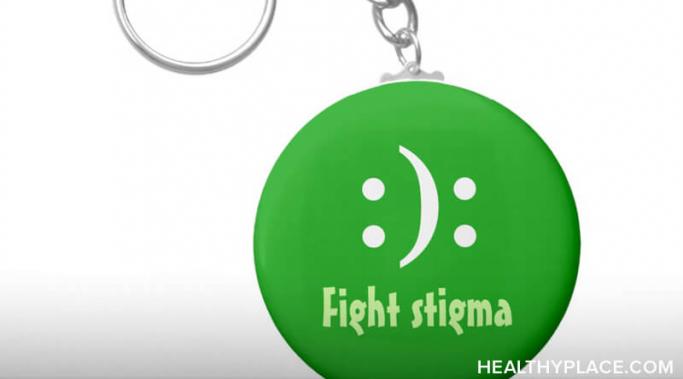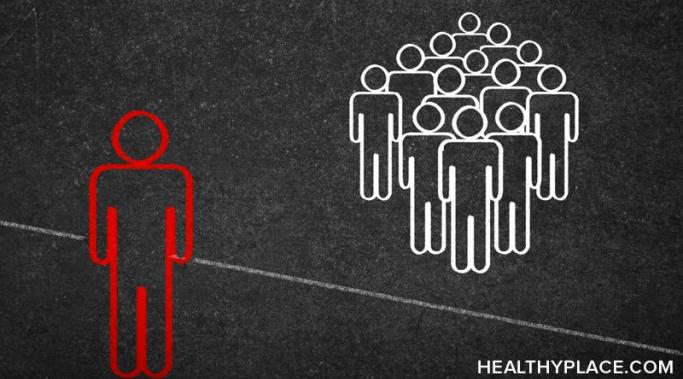Mental health stigma in the workplace is often overlooked. We are fortunate to live in an increasingly wellness-driven world where it's easier to identify institutions that fall short in the fight for mental health acceptance and wellness. How are companies falling short, and how are some raising the bar? And how, as a workforce, can we continue to push progress?
Stigma Video
The next global pandemic is here, and it's not what we expected. Mental health is at a tipping point in the United States and the world. Even before the COVID-19 pandemic, anxiety, depression, and other mental health disorders began steadily trending upward. With one global pandemic slowly moving into the scope of our rearview mirror, another timely and urgent pandemic has prevailed: mental health.
"Get over it." "Snap out of it." If I had a dime for every time I heard those phrases about depression, let's just say I could quit my day job. It irritates, no infuriates, me that the sheer magnitude and hardship that is depression is diminished. It makes a challenging experience all the more compounding. It is hard to say if it's ignorance that drives this misconception or stigma or if the two are even mutually exclusive; one thing for sure is that none of it is helpful to an individual struggling.
I am grateful for the podcasts that help me maintain mental wellness, but first, this background story: In April of last year, while the world was just beginning to open back up, I was experiencing the bleak fallout from a traumatic breakup. Much like when I was at my lowest low, battling depression later that summer, I was constantly searching for ways to forget. One of my favorite ways to accomplish this was going for long, and I mean long, walks. I would put on my shoes, walk down my apartment stairs and just walk. Sometimes three miles, sometimes five, and nine or 10 on the bad days.
As exciting as the holiday season can be, it can also bring up self-stigma about mental health problems. Spending more time with friends and family can lead to a lot of comparisons that may cause shame about one’s position in life. As someone who deals with mental health problems, I sometimes feel like a failure because I think I should be doing so much more, but mental illness has gotten in the way. Dealing with mental health self-stigma is always hard, and the holidays tend to be particularly difficult.
I avoided Student Disability Services in college because of mental health stigma. Although I was diagnosed with various mental health conditions as a teen, it wasn’t until college that I truly realized the debilitating effect mental illness could have on my life. I was highly resistant to the idea when an on-campus counselor first advised me to make an appointment with my university’s Student Disability Services department. Sure, I needed help, but I didn’t need that kind of help.
My name is Rachel Miles, and I am very excited to be joining HealthyPlace to write on Surviving Mental Health Stigma. I was first diagnosed with depression and an eating disorder when I was 16 years old. This resulted in my first hospitalization as well as my first experiences with therapy, medication, and confronting mental health stigma. At the time, I had no idea what a significant part of my life these things would become.
The terms "stigma" and "discrimination" are both used in the world of mental health. There have been debates surfacing about how to talk about people’s negative perceptions and behaviors towards both mental illness and those with mental illness. There are those who say we should stop calling stigma by that term and refer to it as discrimination alone, but, while the two terms are often linked, they are not quite the same thing and having stigma and discrimination separately is beneficial.
There are many ways that fitness can help you fight mental health stigma. One of the ways people form stigmatizing beliefs about those with mental health issues is that they think they are lazy for not working or engaging in society. Mental health stigma makes people believe these myths, but myths can be busted by more individuals who have a mental illness getting healthy exercise and improving their fitness levels.
It is extremely important to your recovery from a mental illness that you not let mental health stigma stop you from achieving your goals. Inside of you are the abilities and passions that can make you happy if you pursue your goals and not allow mental health stigma to stop you from doing what you want most.









